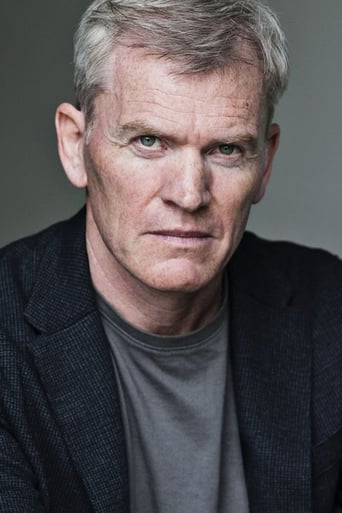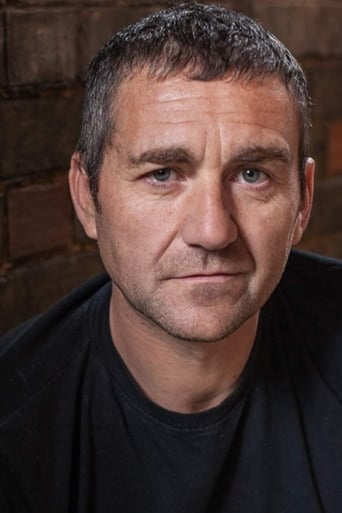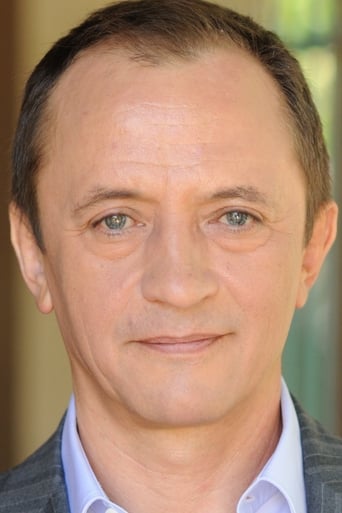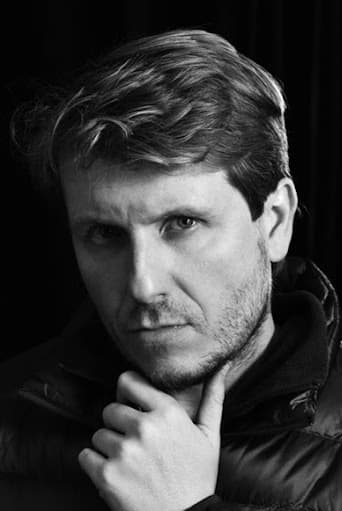Tetrady
not as good as all the hype
Lumsdal
Good , But It Is Overrated By Some
FuzzyTagz
If the ambition is to provide two hours of instantly forgettable, popcorn-munching escapism, it succeeds.
Beulah Bram
A film of deceptively outspoken contemporary relevance, this is cinema at its most alert, alarming and alive.
Matthew Kresal
Across twenty-five years between 1944 and 1969, one of the greatest and most profound revolutions in human history took place. This was not a political or social revolution but a technological one that saw humanity take its first steps into the stars. Space Race, a joint production involving four networks in as many countries, presents that story through a mix of dramatic sequences, CGI, and archive footage across four episodes.Anchoring the viewer's journey are two extraordinary men, the German Wernher Von Braun (played by Richard Dillane) and the Russian Sergei Korolev (played by Steve Nicolson). Across the four episodes, both men give solid performances as two men on opposite sides of the Cold War with one shared passion: reaching space. Both actors also come across naturally with their accents, something which is even more surprising when one looks and discovers that they are in fact both British. Dillane's Von Braun is a man always looking forward but whose past work designing the V-2 for Nazi Germany (and what he knew about Nazi atrocities) always lingers over him, something that Dillane plays well given the confines of the script. Nicolson's Korolev is a man drug out of a Stalinist gulag to help put the Soviet Union on the road to space flight yet is always struggling to find the time and resources needed to pull off great feats. In casting Dillane and Nicolson, the filmmakers found two fine actors to bring these two men to life.The casting goes a long way to help bring the story to life. Those outside of Russia will likely find Korolev and the Soviet side of the space race unfamiliar as even now, twenty-five years on from the end of the Cold War, that story remains largely unknown. Perhaps as a result, Korolev's story might be the more interesting of the two presented as we watch him and the space program in general struggle to make their way forwards. While the Von Braun and American side of the story might be better known, it is no less compelling as we see Von Braun go through similar struggles, the questions about his past, and how the Cold War ultimately gave both men the chance to shine. It's a compelling story though perhaps not always told in the best way possible.For while the history itself is compelling, the writing and presentation of it here sometimes isn't. There are times when it feels forced (due to constraints of screen time and necessity) into presenting the most basic of dialogue and exposition. Indeed there are times when the use of exposition seems out of place as surely the people in the scenes must know the information already, something made even stranger by the presence of narration (presented by actor Robert Lindsay) which fills in the audience on some of the information. The final episode of the series, covering the full-on race to the Moon during the 1960s, especially suffers from being rushed with many incidents being sidelined or omitted all together. Indeed with so much build up to the Moon, the actual Apollo missions are covered in just the closing minutes of the series. The series also has a number of errors both factual (such as saying Yuri Gagarin passed over a sleeping U.S when his orbits did no such thing) and ones presumably done for dramatic reasons (live footage from manned missions when there wasn't in real life). These issues due undermine the series somewhat and leave especially knowledgeable viewers feeling unfulfilled in places.Thankfully the production values of the series make up for some of the deficiencies in the writing. The period recreations and costumes are top notch across all four episodes though aren't always accurate (I live in Huntsville, Alabama where Von Braun was based during the 1950s-60s including having been able to sit at the same conference table he used and let me tell you the recreations don't match anything I've seen from the archives here), they do give a strong sense of the time period in which each episode takes place. The CGI work in particular stands up well, even more so for a decade old series, recreating everything from rocket launches to explosions and indeed having to match archive footage. The launch sequences across the series are of note, always producing a sense of awe and wonder that anyone who has ever been fortunate enough to experience a launch in person has experienced. Last but not least is the music score from Samuel Sim and Ty Unwin which always managed to find the right note and feeling to scenes. While not always perfect in its recreations, it does a fine job nonetheless.Space Race, as a series, makes for interesting viewing. While the writing of its dramatic sequences and errors in narration do undermine it somewhat (hence the rating above), for anyone with a modicum of interest in the topic its worth watching. It has two solid actors bringing two fascinating figures to life and features some good production values which bring history to life. It's not a perfect series but it is a good one that is sure to ignite the viewers interest in space again.
Ollyjd
The BBC have shown that the as-yet-to-mature genre of 'docudrama' can compete with the best their is to offer from either of its parent genres. The script was tight - and by that I mean sounding like what real people might actually have said - and the acting of a good standard. I do not confess to know the intricate details of the actual American-Soviet space race, but suspect the scriptwriters distilled the story to just the right level, allowing for an understanding of the larger issues without losing a sense of the real people behind the events. My only complaint: perhaps a little more of the budget could have been directed toward the CGI sequences.....? Informative and watchable, I look forward to the BBC's next foray into the world of docudrama.
DJMonline
This 4 parter is no less than excellent. Whether a student of history, a student of the reality of space flight or if you only have a passing interest in the subject you will be gripped. It is so well put together and played that even though the events are matter of history you find yourself holding your breath with anticipation as the events unfold and asking yourself "will they, won't they" even though you may already know the answer. I would thoroughly recommend this to anyone with any interest, it's the best series of it's genere (I dare to say, better "From the Earth to the Moon" which I have enjoyed many viewings).Buy it, rent, catch it on a repeat but don't miss this outstanding piece of not just television but filmaking.
Cheerful_Dragon
This series tells the story of the space race from the point of view of the engineers who headed the USSR's and USA's rocket teams. It shows the triumphs and the tragedies without taking sides. I was delighted when Korolev, the USSR's long-unnamed 'Chief Designer', launched his first rocket, and also when Sputnik and then Gagarin made it into space. I shared Von Braun's frustration when the US military passed the satellite project to the Navy, a frustration doubled by the fact that he could have had a satellite into space a year before the Soviets.In 'The Right Stuff', the astronauts and test pilots held centre stage, and rightly so. That was their film. But however good that film was, it turned Von Braun into a caricature of a German scientist. This series tells his side of the story. It also shows the human side of the Soviet race for space and makes the viewer care about them as much as about the Americans. There is no 'us and them' in this series, just people doing something they care about. The performances are spot on and Robert Lindsay's quiet narration is perfect for giving background information and linking segments. Definitely deserves 10/10



